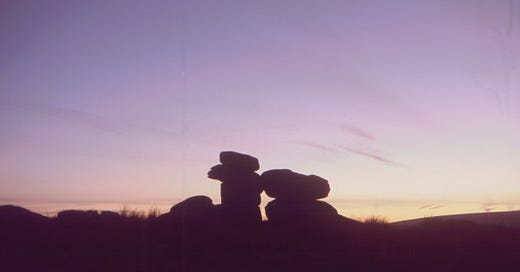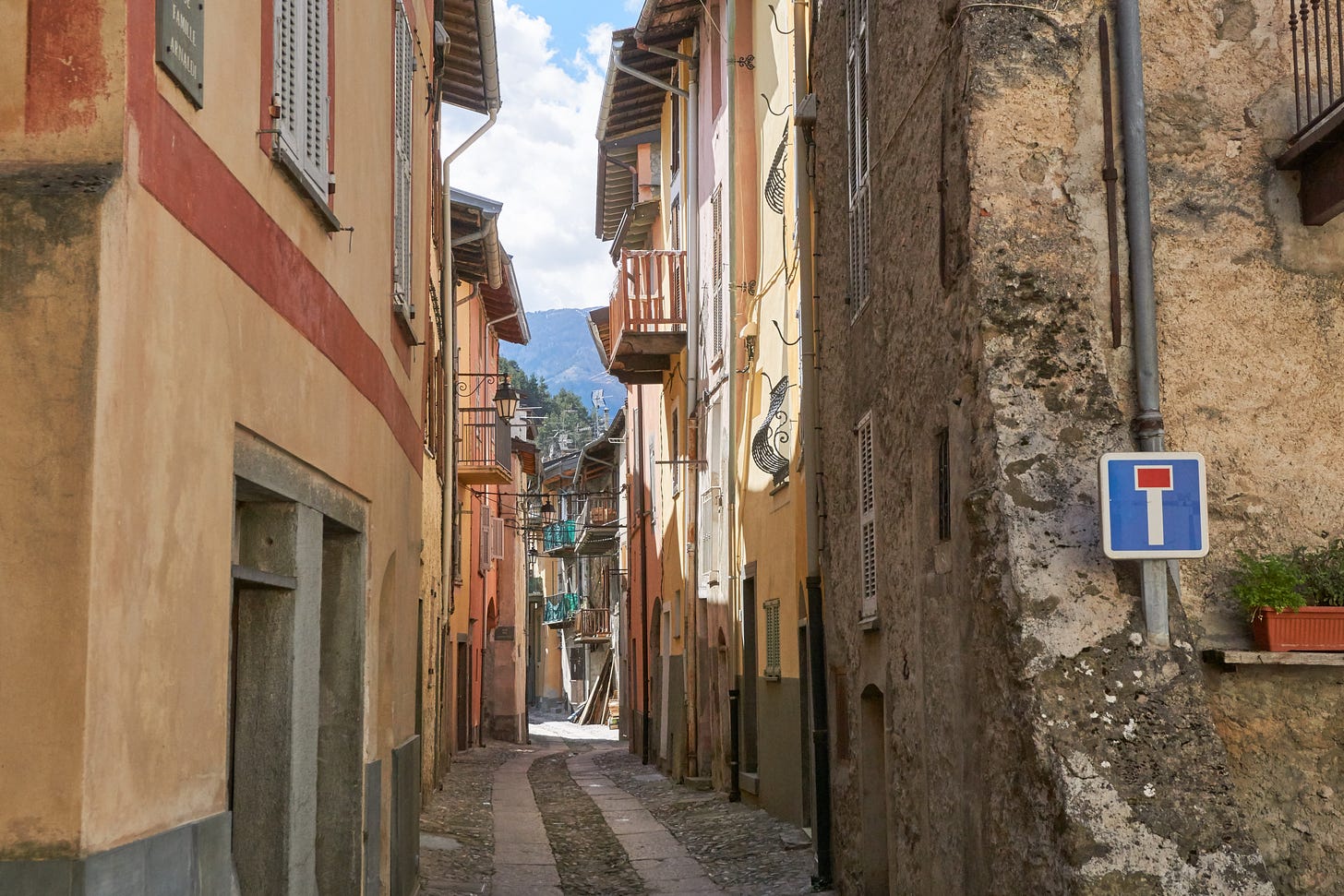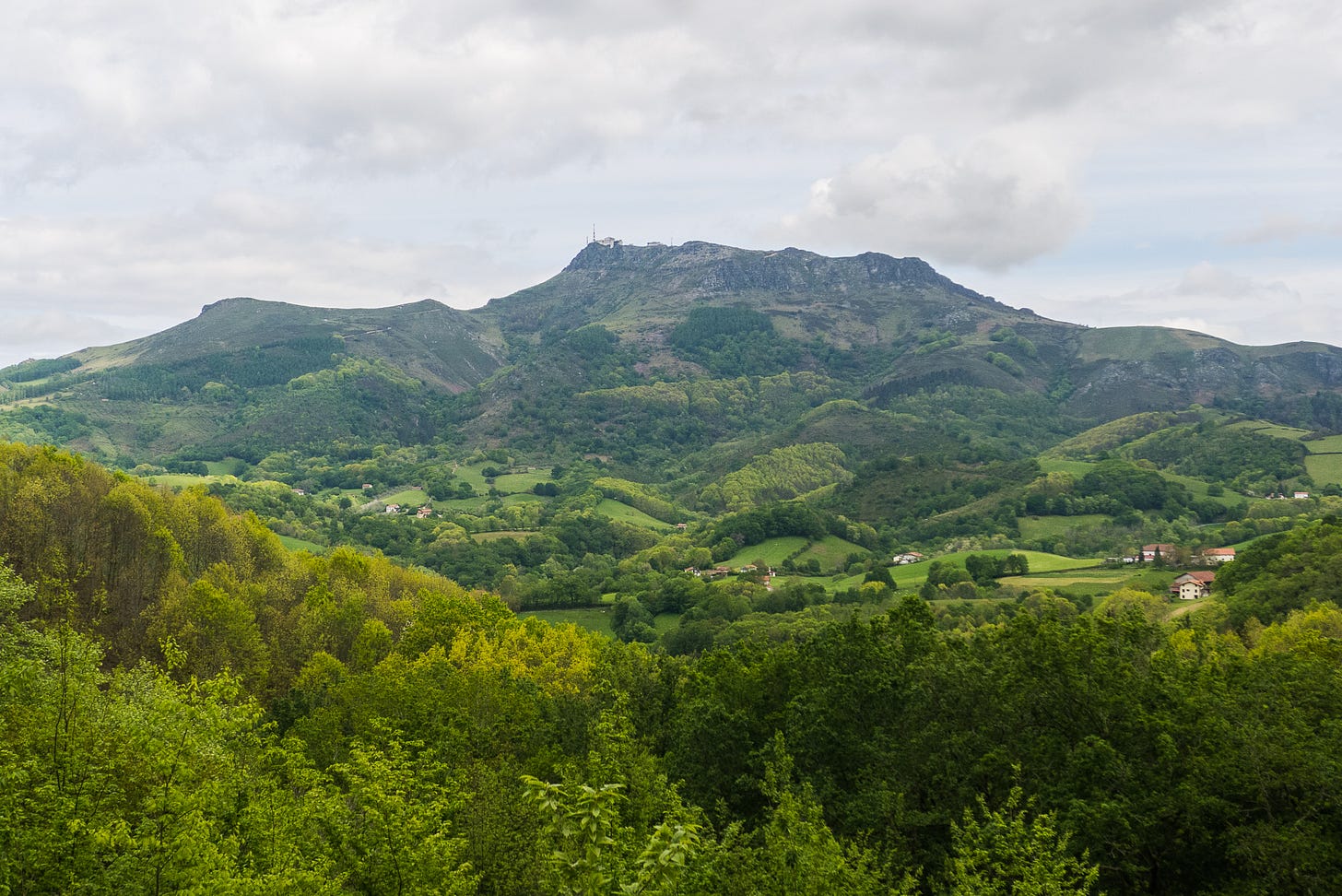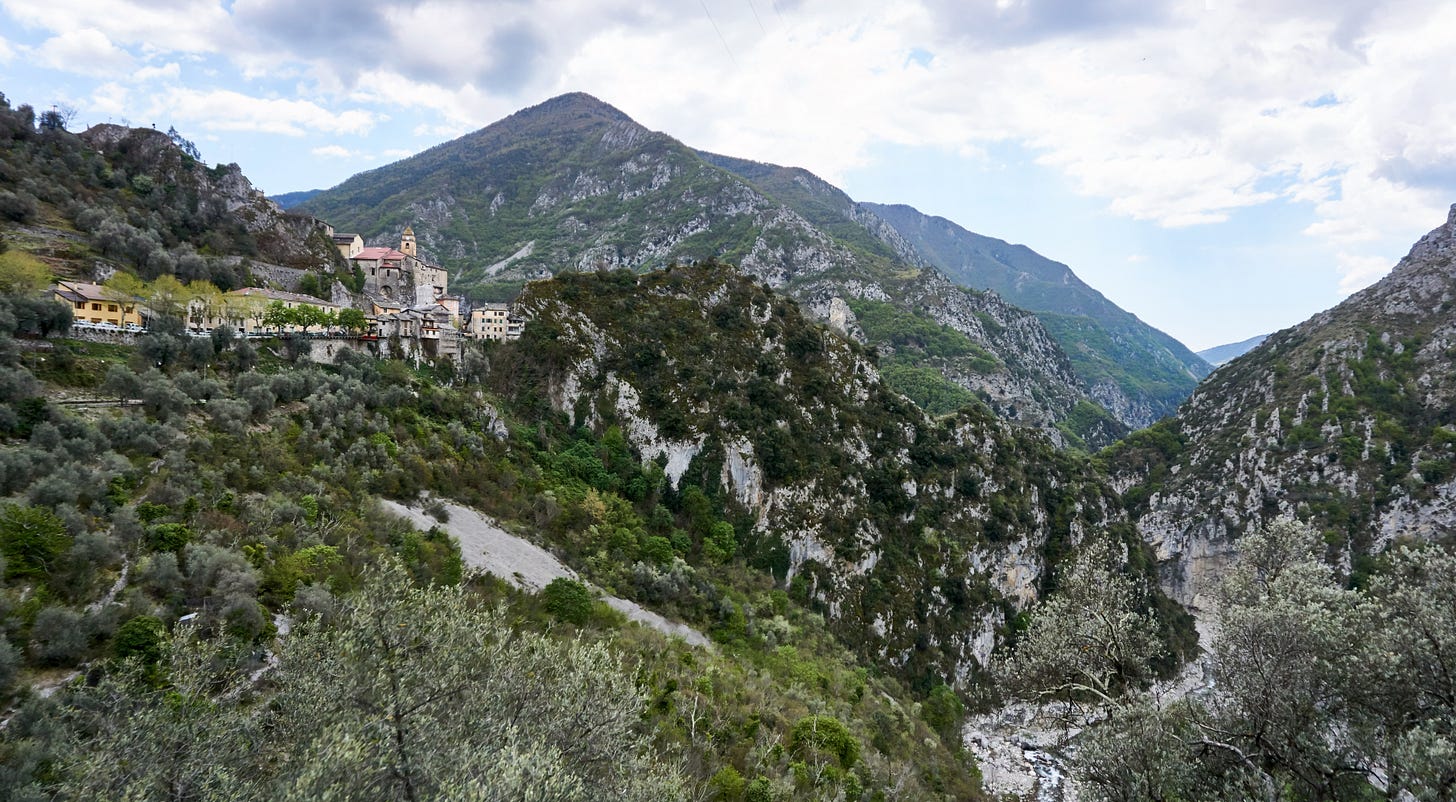Down among the dolmens
A long-distance walker finds an unusual way of earning 40 Euros [Short story 1500 words - 6 mins
Geordie wakes to the feel of human hair drifting across her face. Human hair – and soft human flesh…
She lies still, her heart thumping in her chest, feeling cold air where something has ripped through the nylon of her sleeping bag. The evening moon has just set, she can see the stain of it above the black hilltops in the west. There’s still faint light above the valley where the little town is – the night has barely begun, she can’t have been asleep more than an hour.
The menhir stone at the plateau edge seems bigger. Bigger against the stars, and closer. And things are moving through the cold air of the hilltop, black shapes in the starlight. Black shapes flapping through the air like damp rags hanging on a line…
Geordie’s been walking the Pilgrim Way for forty-three days. By the end of the first week the blisters were just about healed up, and she was doing 25, 30 kilometres at a time under the heavy rucksack. A month in, and she was just about getting used to the green of the oakwoods, the tall grass and asphodel flowers after the hard, dry country she grew up in and which she’d now left for ever. On the forty-fourth day she came down through the chestnut trees to the little village between the hills. The village where the tower of the church was broken, stones fallen into the street, so that she walked out around red-and-white tape, then up the cobbled street with its iron balconies hanging out over her head.
Above the tiled roofs, the sliced-off high cone of Monte Raba – for most of tomorrow she’d be working around the side of that, just above the line where the oak trees give way to gorse and heather. Down on the street it was very quiet. Nobody moving, nobody at work around the fallen stones from the church. But at the top of the street there was a square, and a dusty fountain, and a taverna with battered wicker tables. The fountain was broken as well, the sphere and cross from its top fallen into the trough, the trough cracked across and water drained onto the cobblestones. But there was enough dripping from the tap so that she could fill her two water bottles. Then she went to check out the taverna.
The taverna was remarkable. Remarkable for its darkness, two dusty light bulbs supplementing the tiny, deep-set windows with their massive lintels. The bar seemed to be a single slab of black wood, shaped with the same hand-adze used for the timbers in the ceiling. When her coffee came in its eggshell-sized cup it was the same black as the timbers overhead and the smoky stone. She paid with a five-euro note, and her change came in a copper-coloured pile of 5-centimes and 10-centimes, even a couple of single centismos, which surely went out of currency years ago.
But the half-baguette, when she brought it out into the sunlight and the wicker tables: the bread was soft and warm from the oven, the sheep’s cheese pale and clean, scented like meadow flowers. And the middle-aged woman who emerged from what, by its carved doorway, had to be the mairie or ayuntamento or whatever they called it at this end of the mountains: she had a nice hairdo, and a heavy cotton skirt, and good sensible trainers. She invited herself to Geordie’s table with a tilted head and an eyebrow. Geordie pulled out a wicker chair, and without being asked the bartender brought out two more cups of smoke-blackened coffee.
“No son brujas,” the woman said. Which was a word Geordie didn’t have in her phrasebook. With the help of Google Translate, they worked it out. What she was saying was:
“They are not witches.”
Witches?
“No,” Geordie nods: “Evidamente que no. Of course not.”
“Only a being of male gender,” a nod towards the broken fountain, “would do like this.”
Several houses away, a baby cried in a peevish, intermittent, way; as if it had been crying for a long time, then stopped, and only now gathered energy to start up again.
“Many years ago, there was a man, un eremitaño.” A hermit, Google Translate supplied.
“Over the time of the new moon, the village would pay him money to pass the nights up there, on the mountain, the Monte Raba. Not any more, of course.”
“Of course not.”
“In these days, it is impossible to find a person who will take on such a job.” She gave Geordie a long look, and Geordie saw, below the elegant hairstyle, the tiredness in her eyes.
“I’ve got time,” Geordie said. “And a bivvy bag. I can sleep anywhere. I’ll do it.”
In the darkness the noise is battering against her so that her head will burst. The smell of it, of them: the smell of rotting, decayed vegetation, of unwashed dead flesh. Then the cramps hit her: cramps shooting through her body as if the muscles have shrunk to half their length, twisting her feet and legs like tree roots, bending her double at the waist.
Her teeth clamp together, and she tastes her own blood.
Geordie curls down into the remains of her sleeping bag, trying to stay warm, trying to hold in the pain. The pain, and the damp body-smell from inside the sleeping bag, and the cold. Cold coming up out of the hard ground and cold where the sleeping bag is pressed against the curve of her back.
Through long hours of night she lies curved around her pain, while the air is filled with movement that isn’t the wind, and sounds which could be birds of the nighttime but are not birds, and laughter that’s like the scraping of rocks. Time passes, and pain. Moving just a finger, she pulls aside a corner of the sleeping bag. Dark shapes pass in front of the stars. Behind them, the stars have scarcely moved. She’s lived through, at most, a single hour of the long autumn night.
Slowly, the stars move around the sky; slowly, the night passes. Her bones turn numb where the stones press against them. Are her lungs getting adjusted to the stench? The muscles tear and complain, but there’s nowhere for them to go: she doesn’t dare to straighten out her legs. Sometimes, something is in front of her, breathing cold onto her face. She keeps her eyes closed, tries not to move at all.
After how many hours – days, years – she realises that the sounds in the air around her have ceased. She opens one eye, then the other. In the east, there’s a glow of dawn above the mountain’s edge.
She pulls one leg straight, then the other. Slowly, gradually – yes, the pain is seeping away. The light strengthens; curves of green and beige hill, fading one behind the other. Between them, below, the darker grey-green of the wooded glens. At the plateau edge, the dolmen is just three boulders of granite, textured by the low sunlight.
The pain seeps out of her toes: in her limbs now a great tiredness, a memory of pain. She pulls her rucksack towards her, fumbles inside it for the duct tape, and repairs the torn sleeping bag while still inside it. Sunlight warms her face. In the trees down the slope a bird is singing, and then a black crescent flash across the sunrise, an Alpine swift cutting the morning air. She drinks from her water bottle, still chilled from the night, and sleeps, then, for an hour or two.
When it gets too hot inside the sleeping bag, she rolls it up and heads down to the village.
“I’m sorry,” the Mayor says. She lifts Geordie’s hand, places an envelope under her fingers. “But we do have to try, you can understand that.”
The bar-tender brings out two tall-stemmed glasses, and a dusty bottle without any label. In the street, two workers in baggy overalls are clearing fallen stones around the church: the same stones as yesterday, there’s no fresh damage to be seen. Two slices of yellow cheesecake join the wine bottle.
“You have come across any other pilgrim who might be in need of a few Euros? No? A shame. One more night of the new moon to get through. I don’t think we’ll be able to save the vines this year, or the chestnut trees. But at least we have slept.”
“The monk they used to have here. The eremitaño. He stayed up on the mountain, all through the new moon?”
“Every month. But nowadays.. nobody’s that tough these days. Nobody has that faith.”
Thin golden sunlight lies across the brown houses, the worn cobblestones of the square. Geordie looks into the wine, the light that sparkles at its heart. The envelope with its three tattered 20-euro notes.
“What a load of wimps we are, really.” And then, tapping the words into Google, she says in Spanish: “En realidad, no tan malo. Y puedo dormir en cualquier lugar.”
It wasn’t really so bad. And like I said… I can sleep anywhere.
Images:
Black Tor, Dartmoor; Descending to La Brigue, Alpes Maritimes; Street in La Brigue, Alpes Maritimes; La Rhune, France/Spain border, Basque Country; Saorge, Alpes Maritimes










It was an interesting story, thank you
Fabulous!